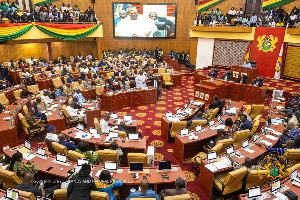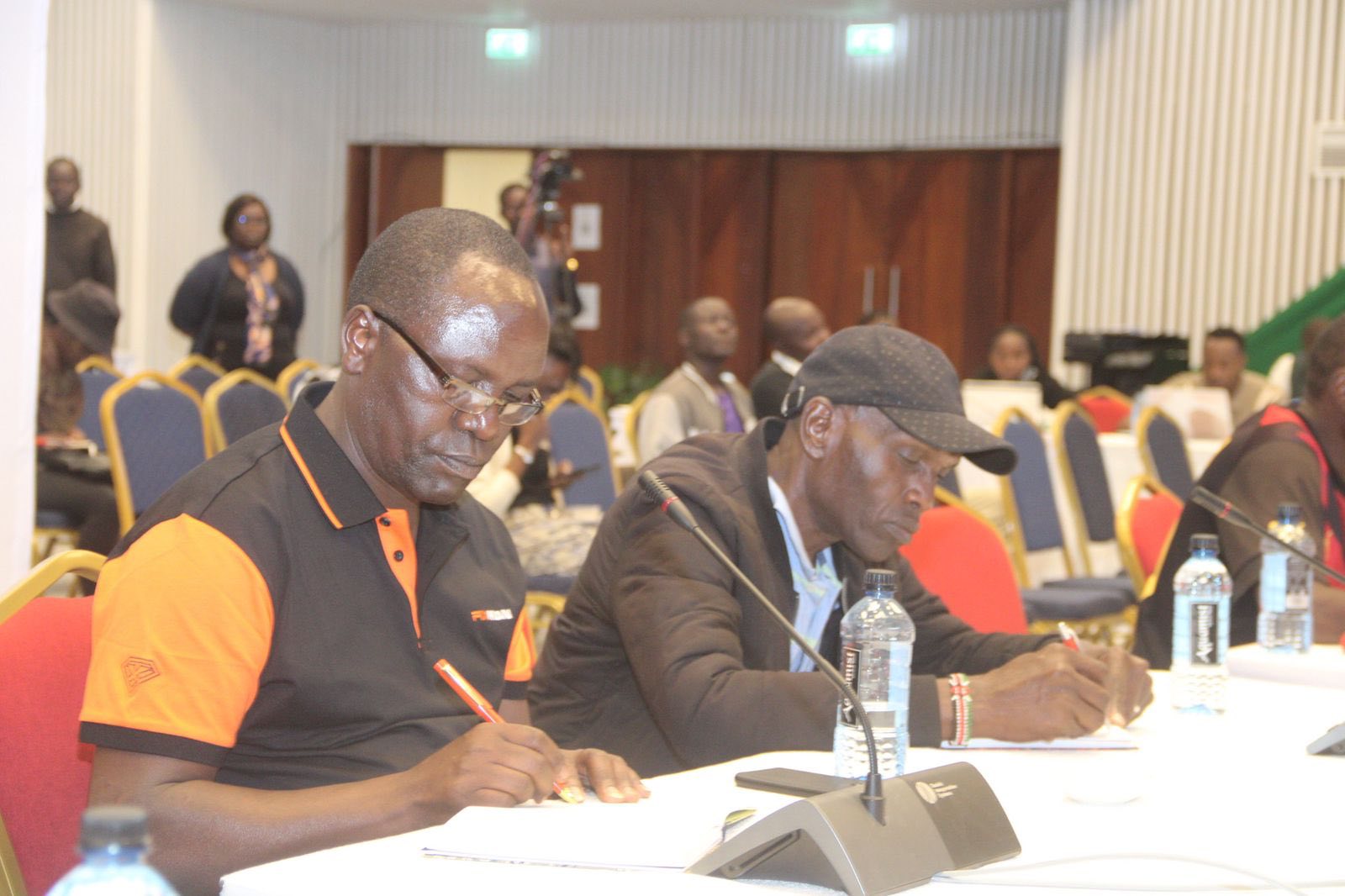Parliament recommends ratification of WTO agreement on fisheries subsidies
File photo of parliament in session
The Committee on Food, Agriculture, and Cocoa Affairs and the Committee on Trade, Industry, and Tourism of Parliament have recommended that Ghana ratify the World Trade Organisation (WTO) Agreement on Fisheries Subsidies.
This move, according to the Committee, aims to promote sustainable marine resource management and curb harmful fisheries subsidies that contribute to overcapacity, overfishing, and Illegal, Unreported, and Unregulated (IUU) fishing.
Moving the report of the Committee on the Floor of Parliament for the adoption of the House on Friday, Dr. Godfred Seidu Jasaw, Chairman of the Committee on Food, Agriculture, and Cocoa Affairs, said the Committee considered the Agreement a significant step in global efforts to curb harmful fisheries subsidies that contribute to overcapacity, overfishing, and IUU fishing, promoting sustainable marine resource management.
“Mr. Speaker, the ratification would also highlight Ghana’s commitment to global cooperation, aligning with its roles as host of the African Continental Free Trade Area (AfCFTA) and as a founding member of the African Union (AU),” he said.
Dr. Jasaw noted that the implications of the ratification include enhancing measures against IUU fishing and other unsustainable fishing practices, improving data collection and reporting on fisheries indicators, increasing transparency among WTO members, and supporting global efforts to sustainably manage fisheries resources.
Other benefits he noted include fair trade practices in both domestic and international markets, contributing to job creation, poverty alleviation, national food security, and strong foreign exchange earnings.
Among the challenges and concerns enumerated in the Committee’s report were the potential impact on local fishing communities, particularly small-scale and artisanal fishers who rely on government support, such as subsidies for premix fuel, outboard motors, and fishing gear.
“There is a need for careful consideration of domestic implications and mitigating measures to protect vulnerable fishing communities,” the report said.
The Committee recommended that the Ministry of Fisheries and Aquaculture finalise a new Fisheries Bill, which will incorporate the provisions of the WTO Agreement on Fisheries Subsidies.
“The Committee will closely monitor the drafting and passage of the new legislation to ensure it reflects Ghana’s international commitments and the socio-economic realities of fishing communities,” the report said.
Some Members of Parliament (MPs) who contributed to the debate on the adoption of the Committee’s report called for sustainable practices, emphasizing environmentally friendly practices, reduction of plastic waste, and promotion of local materials for fishing gear.
Mr. Habib Iddrisu, the New Patriotic Party (NPP) MP for Tolon, seconding the motion, raised concerns about potential effects on fishermen’s livelihoods, with plans to mitigate adverse effects.
Mr. Murtala Mohammed, a National Democratic Congress MP for Tamale Central and the Minister for Environment, Science, Technology, and Innovation, called for investment in infrastructure and equipment to support fishing communities, as well as improvements in working conditions and resources available to officials in these areas.
Madam Emelia Arthur, the Minister for Fisheries and Aquaculture, said the WTO agreement prohibits subsidies to vessels engaged in IUU fishing, which is relevant to Ghana’s current “yellow card” status from the European Union.
She told Parliament that the expected outcomes of the ratification would include improved sustainability, efficiency, transparency, and cooperation among WTO members, potentially boosting Ghana’s fishing industry.
“Mr. Speaker, potential outcomes will include improved industry sustainability that will enhance measures against IUU fishing and unsustainable practices, economic benefits where fair trade practices and sustainable fishing may lead to economic gains, and increased transparency for better data collection and reporting among WTO members,” she said.










